Connect
JONATHAN FIELDS SHARES PRACTICAL TIPS TO SHIFT YOUR MINDSET (AND LET IN MORE JOY)
The science and research is in: Your mindset has the power to affect you not just mentally, but physically as well. The case is compelling, and while we’re ready to adopt a positive mindset, we need help with the next step: How?
For advice, we turned to Jonathan Fields, founder of the Good Life Project. Read on for his remarkable insights on mindset, plus practical tools to help you shift yours to create a more joy-filled life.
BARRE3: In the Good Life Project, you talk about how a person’s role plays a major role in how they experience life. Can you explain this concept?
JONATHAN FIELDS: In 2010, I stepped off of a plane in Austin, Texas, and noticed a sound in my ears. Over the next 6 weeks, it would change, grow, and finally awaken me in the middle of the night in the form of a loud, constant, high-pitched noise. I’ve since come to learn it was tinnitus, no clear cause and no real treatment, and it would never leave me. In the early days, I fought it, let it consume me, could think of nothing else, and it was a brutal moment for me.
While it remains to this day, over time, I was able to “rewire” my brain through a blend of practices that, first, allowed me to come back to some sense of normalcy and, since, has expanded both my capacity for empathy and my ability to navigate struggle and circumstance differently. Not always, but often enough. And, it’s taught me that a good life is more about the capacity to handle whatever comes your way than it is about everything being always the way you want it to be. In no small part, because the latter is impossible.
Life is one part circumstance and one part how we “process” circumstance.
We can try to control what comes our way to make life good, but the truth is, we don’t often have the ability to reign supreme over many of the things that happen to and around us. Whether that’s a good thing, a bad thing, or just a thing is largely about mindset. Can we find goodness or lightness in a dark or trying moment? Can we access a place of gratitude, equanimity, grace, humor, and ease, even in the face of experiences that do their best to push every button? Can we find acceptance in the things we cannot change and allow ourselves to feel, grieve, suffer, and struggle, knowing that this, too, is a part of the human experience? That capacity is one of the great difference-makers in a life well-lived.
BARRE3: Instead of looking at all 93 days of summer as opportunities to experience joy, many of us put all our stock in our vacations, expecting to pack a summer’s worth of memories into a one- or two-week time period. That’s not only a lot of pressure on one trip, but it also takes away from the potential of the rest of the summer. How can we shift our mindset to appreciate the whole season, opening ourselves up to joy every day?
JF: Practice presence. Wake up in the morning, spend a few minutes planning joy. Ask “what can I do today, even the smallest thing, in order to experience joy?” Make a list of 1 to 3 things, maybe they’re even on your to-do list already. Then, as you move through your day, pause at regular intervals, take note of what’s going on around you, what is “right,” and what you are grateful for. It seems silly, but these brief, regular touchpoints with presence and gratitude can make a real difference and make summer a state of mind, rather than a place you visit.
BARRE3: It’s one thing to decide to change your mindset, and something else entirely to actually do it. Do you have any advice about how to go about changing your mindset?
JF: It’s different for every person, but building habits, practices, and rituals is key. And, integrating them into your life in a way that helps you actually “live” them is critical. I’m a big fan of James Clear’s approach in his book Atomic Habits, which is all about tiny, daily actions that lead to sustained habits and, eventually, big results.
For me, it’s about mindfulness meditation, pranayama (yogic breathing), movement (tracking steps, at a minimum), and making a concerted effort to be present to spend as much time as possible doing things that fill me, rather than empty me, with people I cannot get enough of.
BARRE3: Change is rarely a straight line to success. Do you have any words of advice for those inevitable moments when we forget to exercise our be-present muscle and start to slip back into future-focused thinking?
JF: Forgive your humanity. You’re not a robot. Every moment, every day is an invitation to start now.
The science and research is in: Your mindset has the power to affect you not just mentally, but physically as well. The case is compelling, and while we’re ready to adopt a positive mindset, we need help with the next step: How?
For advice, we turned to Jonathan Fields, founder of the Good Life Project. Read on for his remarkable insights on mindset, plus practical tools to help you shift yours to create a more joy-filled life.
BARRE3: In the Good Life Project, you talk about how a person’s role plays a major role in how they experience life. Can you explain this concept?
JONATHAN FIELDS: In 2010, I stepped off of a plane in Austin, Texas, and noticed a sound in my ears. Over the next 6 weeks, it would change, grow, and finally awaken me in the middle of the night in the form of a loud, constant, high-pitched noise. I’ve since come to learn it was tinnitus, no clear cause and no real treatment, and it would never leave me. In the early days, I fought it, let it consume me, could think of nothing else, and it was a brutal moment for me.
While it remains to this day, over time, I was able to “rewire” my brain through a blend of practices that, first, allowed me to come back to some sense of normalcy and, since, has expanded both my capacity for empathy and my ability to navigate struggle and circumstance differently. Not always, but often enough. And, it’s taught me that a good life is more about the capacity to handle whatever comes your way than it is about everything being always the way you want it to be. In no small part, because the latter is impossible.
Life is one part circumstance and one part how we “process” circumstance.
We can try to control what comes our way to make life good, but the truth is, we don’t often have the ability to reign supreme over many of the things that happen to and around us. Whether that’s a good thing, a bad thing, or just a thing is largely about mindset. Can we find goodness or lightness in a dark or trying moment? Can we access a place of gratitude, equanimity, grace, humor, and ease, even in the face of experiences that do their best to push every button? Can we find acceptance in the things we cannot change and allow ourselves to feel, grieve, suffer, and struggle, knowing that this, too, is a part of the human experience? That capacity is one of the great difference-makers in a life well-lived.
BARRE3: Instead of looking at all 93 days of summer as opportunities to experience joy, many of us put all our stock in our vacations, expecting to pack a summer’s worth of memories into a one- or two-week time period. That’s not only a lot of pressure on one trip, but it also takes away from the potential of the rest of the summer. How can we shift our mindset to appreciate the whole season, opening ourselves up to joy every day?
JF: Practice presence. Wake up in the morning, spend a few minutes planning joy. Ask “what can I do today, even the smallest thing, in order to experience joy?” Make a list of 1 to 3 things, maybe they’re even on your to-do list already. Then, as you move through your day, pause at regular intervals, take note of what’s going on around you, what is “right,” and what you are grateful for. It seems silly, but these brief, regular touchpoints with presence and gratitude can make a real difference and make summer a state of mind, rather than a place you visit.
BARRE3: It’s one thing to decide to change your mindset, and something else entirely to actually do it. Do you have any advice about how to go about changing your mindset?
JF: It’s different for every person, but building habits, practices, and rituals is key. And, integrating them into your life in a way that helps you actually “live” them is critical. I’m a big fan of James Clear’s approach in his book Atomic Habits, which is all about tiny, daily actions that lead to sustained habits and, eventually, big results.
For me, it’s about mindfulness meditation, pranayama (yogic breathing), movement (tracking steps, at a minimum), and making a concerted effort to be present to spend as much time as possible doing things that fill me, rather than empty me, with people I cannot get enough of.
BARRE3: Change is rarely a straight line to success. Do you have any words of advice for those inevitable moments when we forget to exercise our be-present muscle and start to slip back into future-focused thinking?
JF: Forgive your humanity. You’re not a robot. Every moment, every day is an invitation to start now.


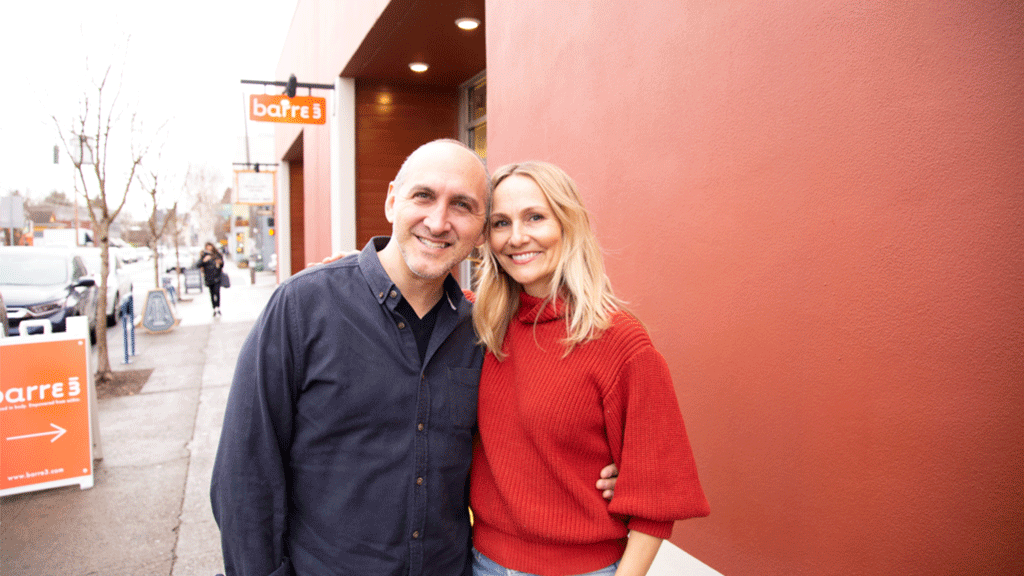
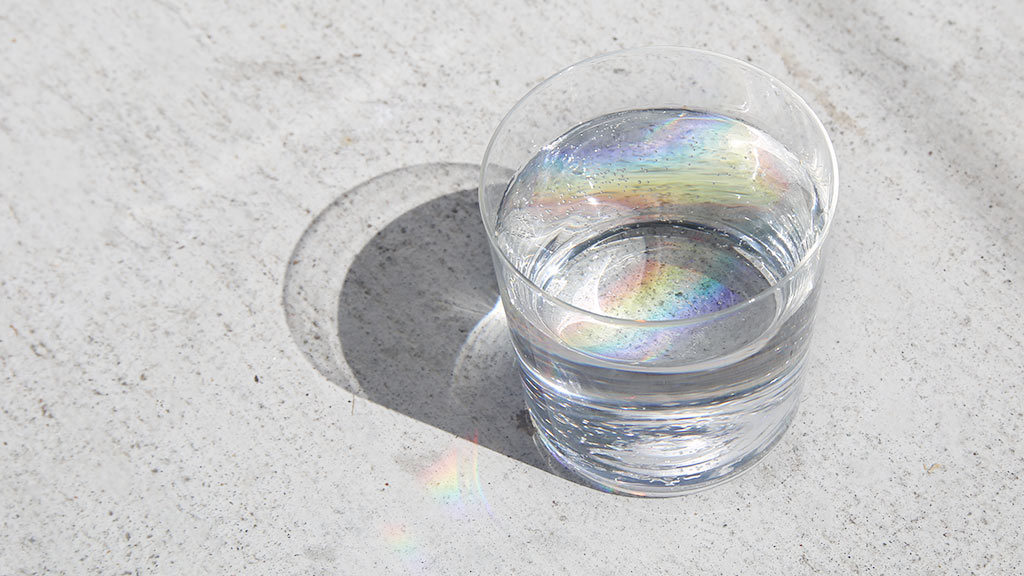
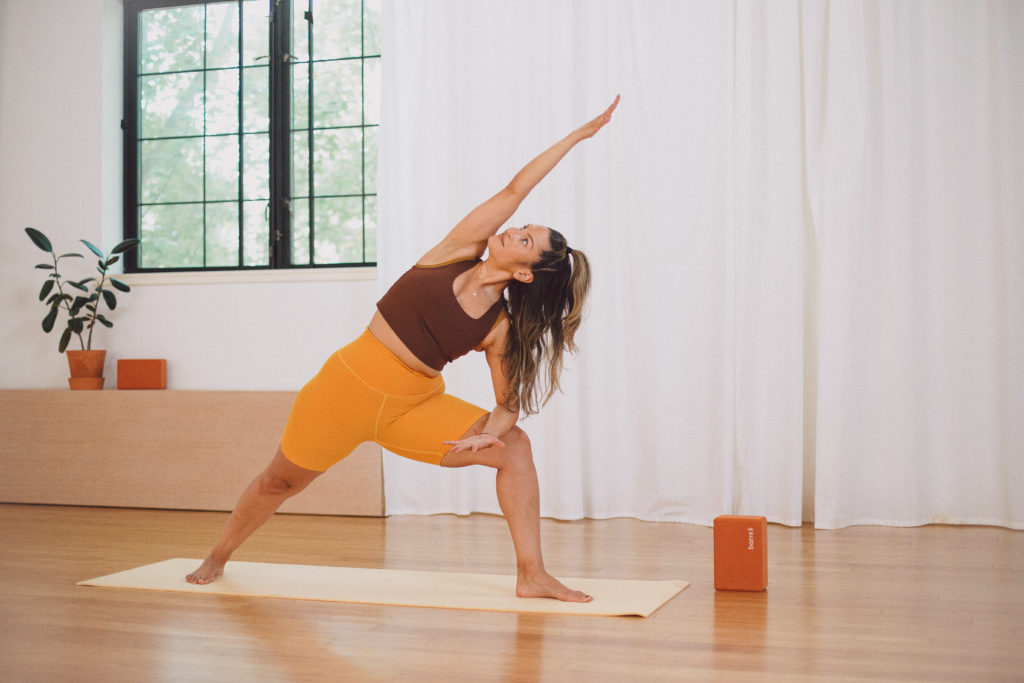
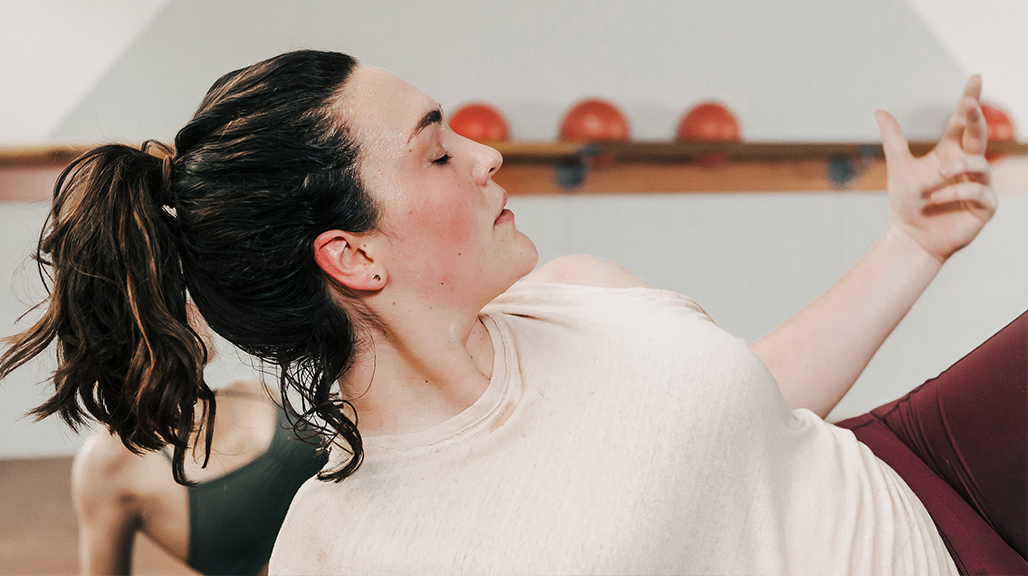
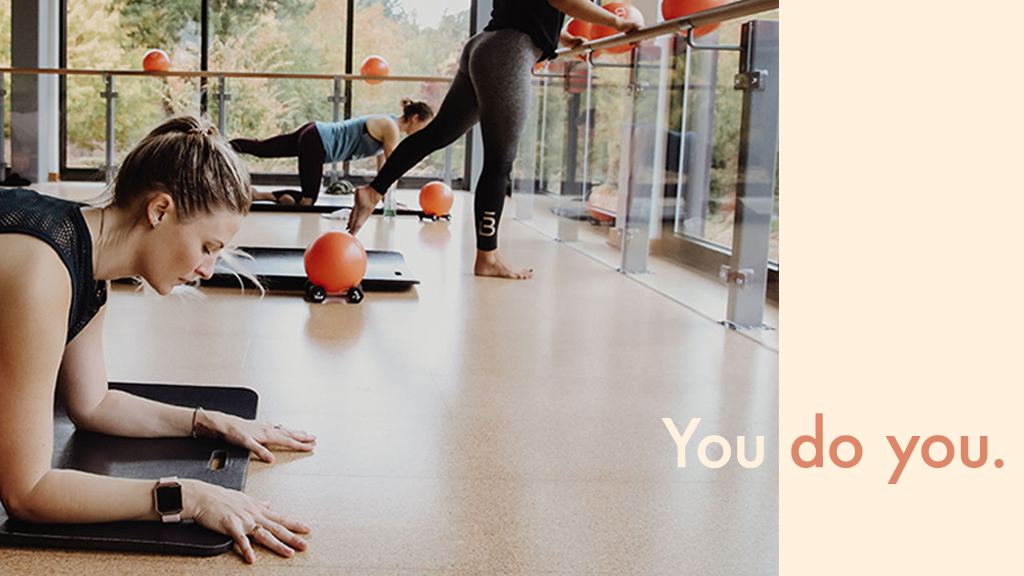



One person has left a comment. Join the conversation!
View Comments